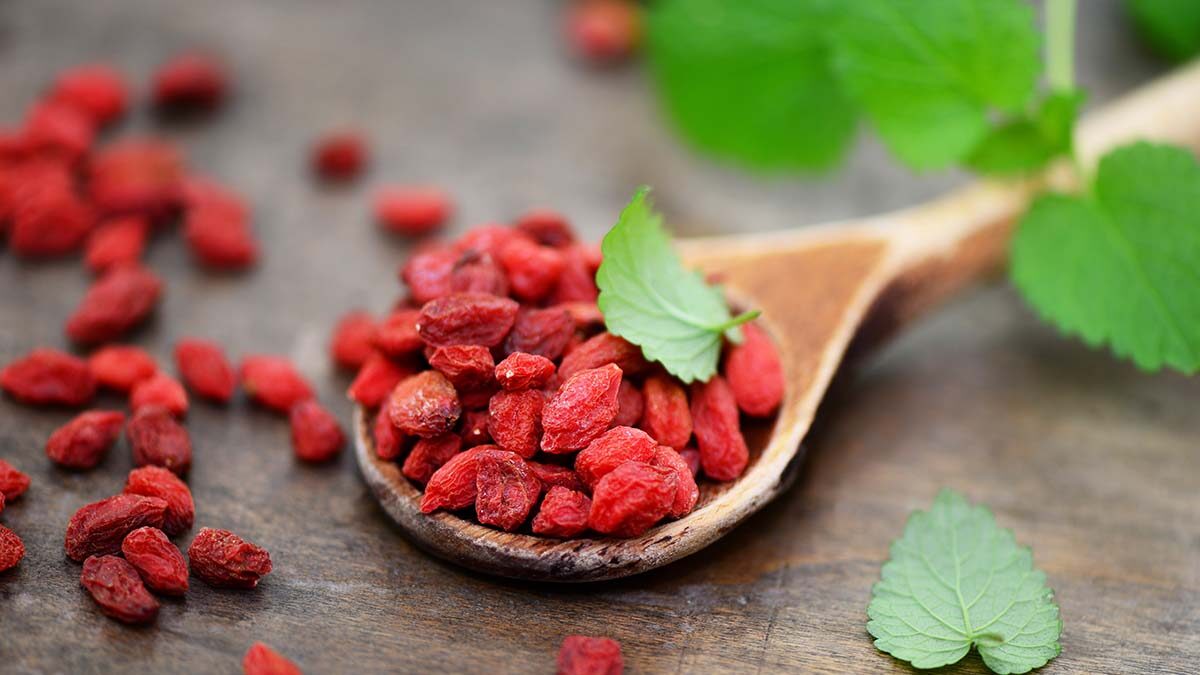We know that inadequate sleeping is associated with changes in diet—people tend to eat worse—but what about the opposite question: Can food affect sleep? In a study on kiwifruit, this seemed possible (see Kiwifruit For Insomnia), but the mechanism the researchers suggested for the effect—the serotonin levels in kiwifruit—doesn’t make any sense, since serotonin can’t cross the blood-brain barrier. We can eat all the serotonin we want and it shouldn’t affect our brain chemistry. A different brain chemical, though, melatonin, can get from our gut to our brain.
Melatonin is a hormone secreted at night by the pineal gland in the center of our brain to help regulate our circadian rhythm. Supplements of the stuff are used to prevent and reduce jet lag, and about 20 years ago MIT got the patent to use melatonin to help people sleep. But melatonin “is not only produced in the pineal gland—it is also naturally present in edible plants.”
That might explain the results of a study, “Effects of a Tart Cherry Juice Beverage on the Sleep of Older Adults with Insomnia” (See Tart Cherries for Insomnia). The research group had been doing an earlier study on tart cherry juice as a sports recovery drink. There’s a phytonutrient in cherries with anti-inflammatory effects on par with drugs like aspirin and ibuprofen, so the researchers were trying to see whether tart cherry juice could reduce muscle soreness after exercise. During the study, some of the participants anecdotally noted that they were sleeping better on the cherries. That was unexpected, but the researchers realized that cherries were a source of melatonin so they put them to the test.
The reason they chose older subjects is that melatonin production tends to drop as we age, which may be one reason why there’s a higher insomnia rates among the elderly. So, they took a group of older men and women suffering from chronic insomnia and put half on cherries and half on placebo. They couldn’t use whole cherries for the study—how could you fool people with a placebo cherry? So they used cherry juice versus cherry Kool-Aid.
They found that participants did in fact sleep a little better on the cherry juice. The effect was modest, but significant. Some, for example, fell to sleep a few minutes faster and had 17 fewer minutes of waking after sleep onset (waking up in the middle of the night). It was no insomnia cure, but it helped—without side effects.
How do we know it was the melatonin, though? They repeated the study, this time measuring the melatonin levels, and indeed saw a boost in circulating melatonin levels after the cherry juice, but not after the Kool-Aid. Similar results were found in people eating the actual cherries—seven different varieties boosted melatonin levels and actual sleep times. The effects of all the other phytonutrients in cherries can’t be precluded—maybe they helped too—but if it is the melatonin, there are more potent sources than cherries.
Orange bell peppers have a lot, as do walnuts—and a tablespoon of flaxseeds has about as much as a tomato. See the chart in my video Tart Cherries for Insomnia. The melatonin content of tomatoes was suggested as one of the reasons traditional Mediterranean diets were so healthy. They have less melatonin than the tart cherries, but people may eat a lot more tomatoes than cherries. Sweet cherries have 50 times less melatonin than tart ones; dried cherries appear to have none.
A few spices are pretty potent: just a teaspoon of fenugreek or mustard seeds has as much as a few tomatoes. The bronze and silver go to almonds and raspberries, though. And the gold goes to gojis. Goji berries were just off the charts.
I’ve previously explored Human Neurotransmitters in Plants in the context of boosting serotonin levels in the brain to improve mood. See:
-Michael Greger, M.D.
PS: If you haven’t yet, you can subscribe to my videos for free by clicking here and watch my full 2012 – 2015 presentations Uprooting the Leading Causes of Death, More than an Apple a Day, From Table to Able, and Food as Medicine.
